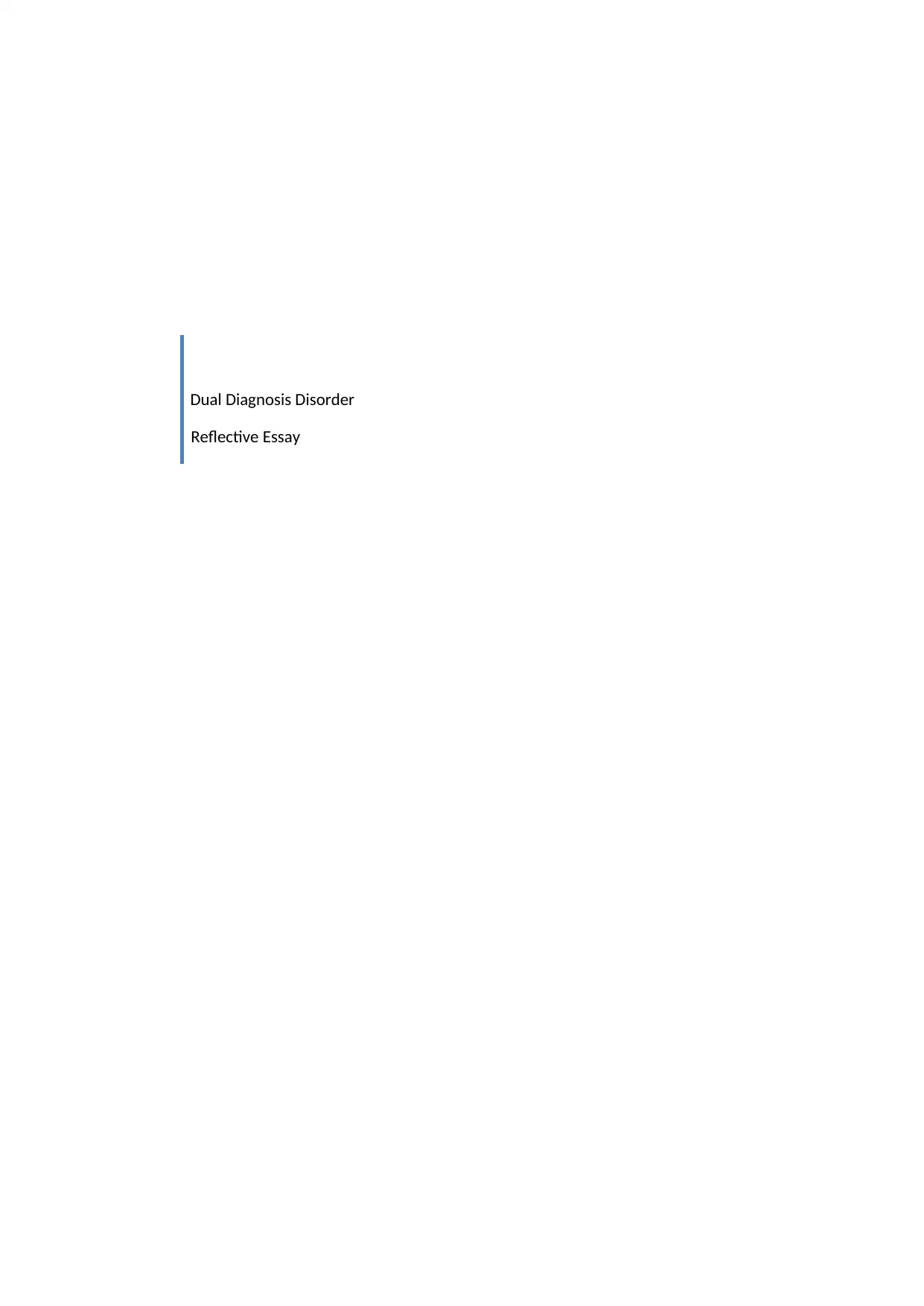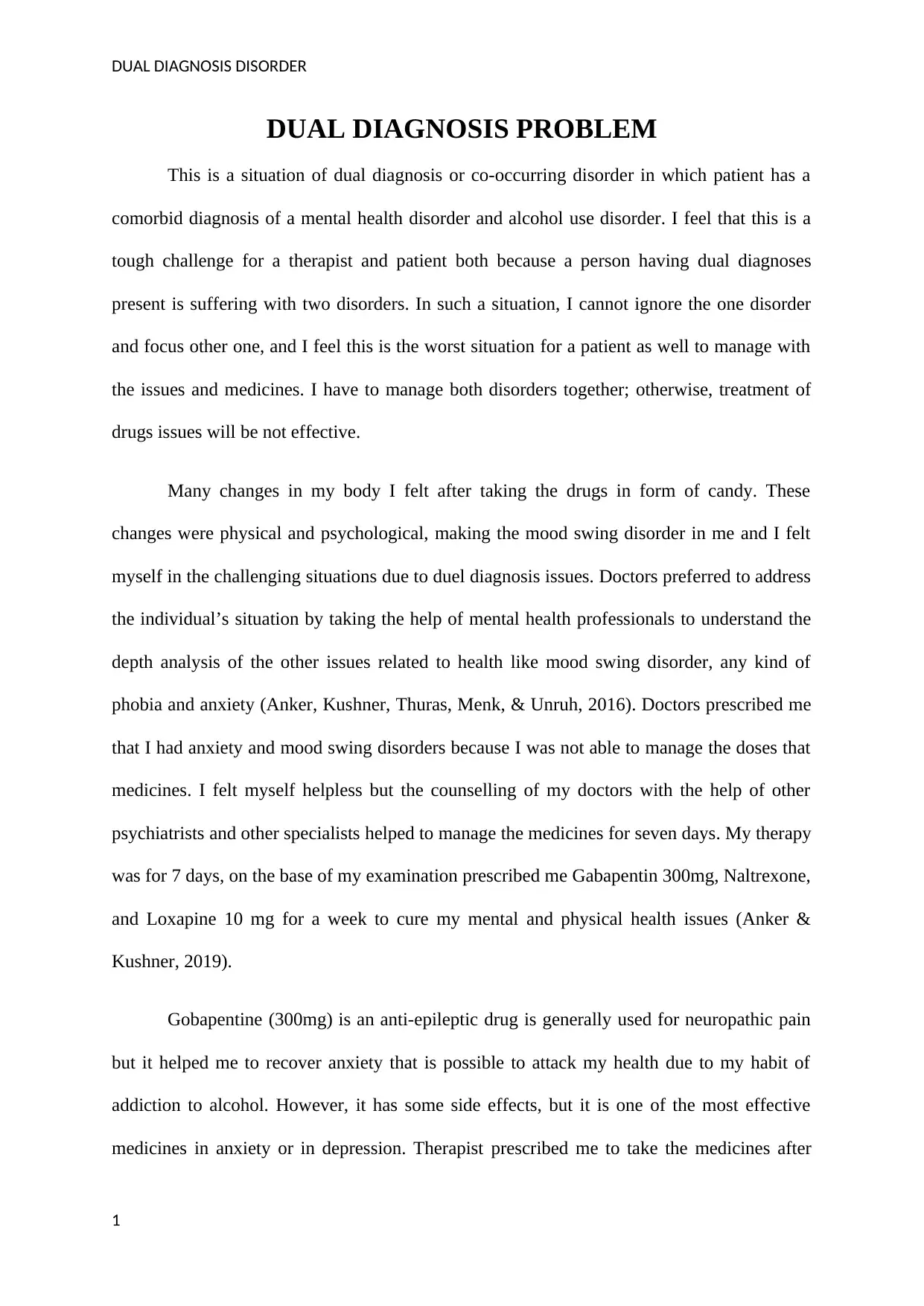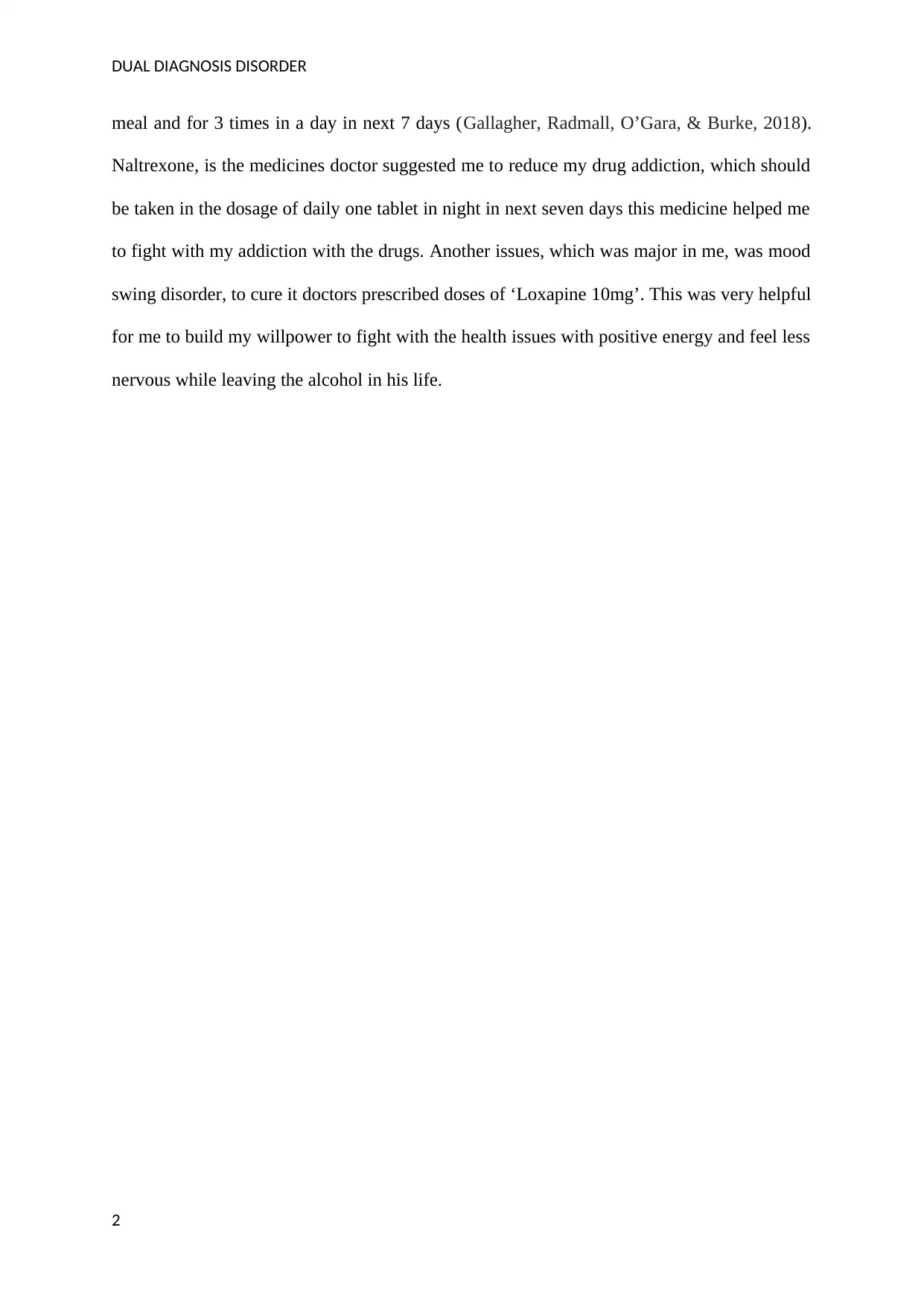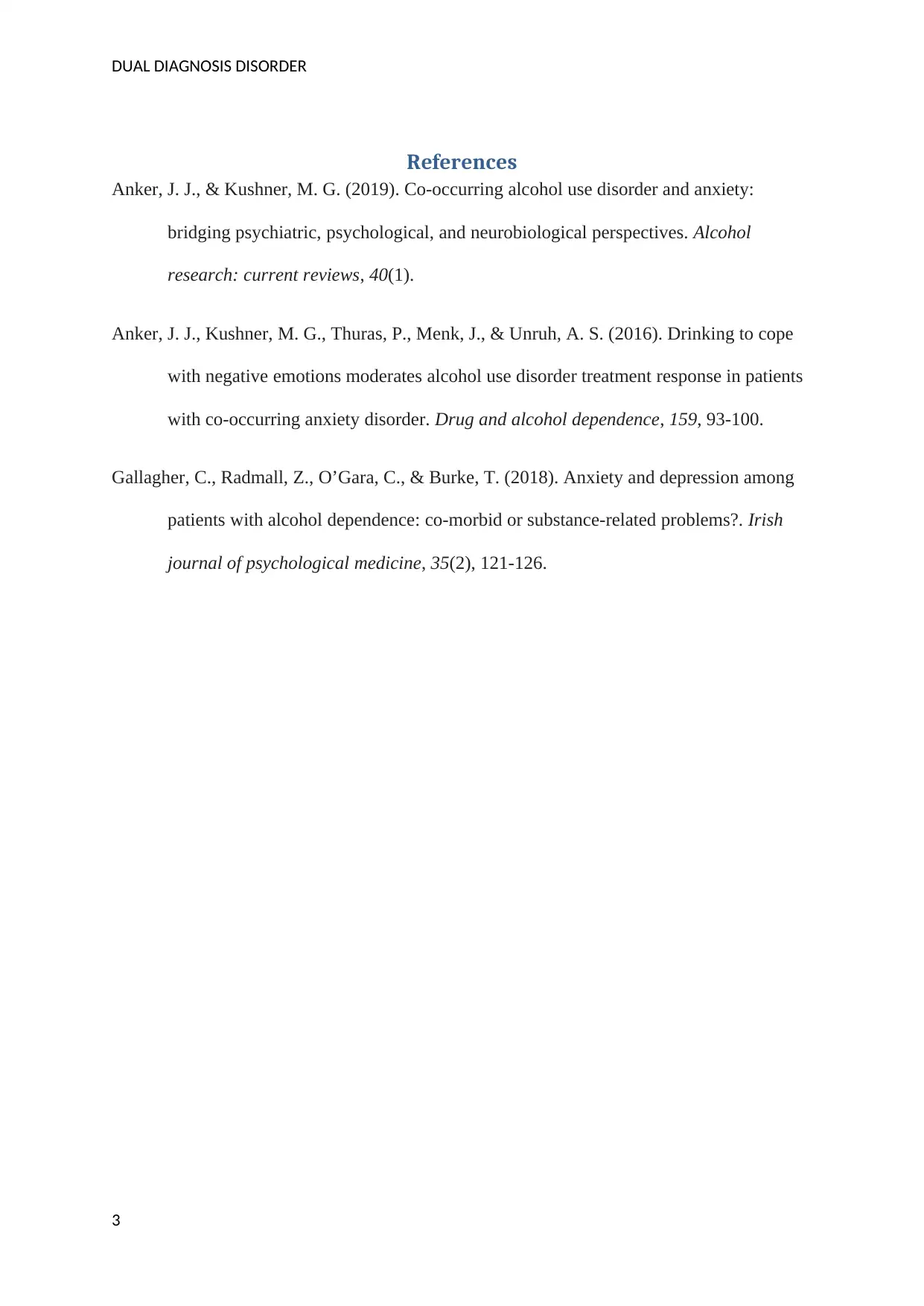Pharmacology Course: Reflective Essay on Dual Diagnosis Disorder
VerifiedAdded on 2022/08/19
|4
|659
|11
Essay
AI Summary
This reflective essay explores the experience of a patient with a dual diagnosis of alcohol use disorder and anxiety disorder, focusing on medication adherence. The author, in the role of a patient, describes the challenges of managing prescribed medications, including Gabapentin, Naltrexone, and Loxapine, over a seven-day period. The essay details the physical and psychological changes experienced, such as mood swings, and the importance of mental health support. It also reflects on the impact of this experience on the author's understanding as a therapist, highlighting the difficulties faced by patients with dual diagnoses and the need for comprehensive treatment approaches. The essay references relevant literature on co-occurring disorders and treatment strategies, and the patient's experience provides insights into the practical aspects of medication management and the importance of empathy in therapeutic practice.
1 out of 4






![[object Object]](/_next/static/media/star-bottom.7253800d.svg)